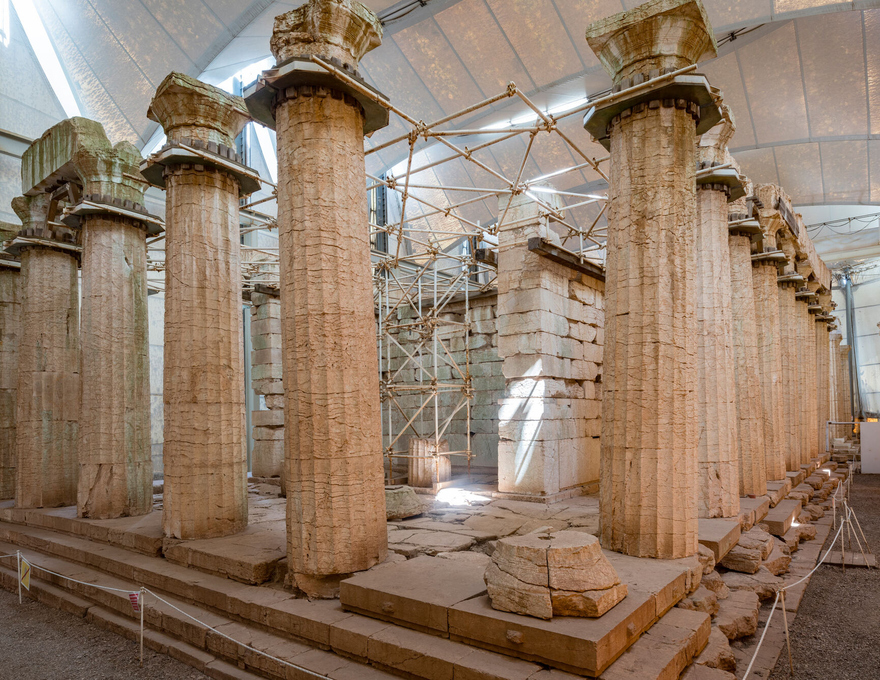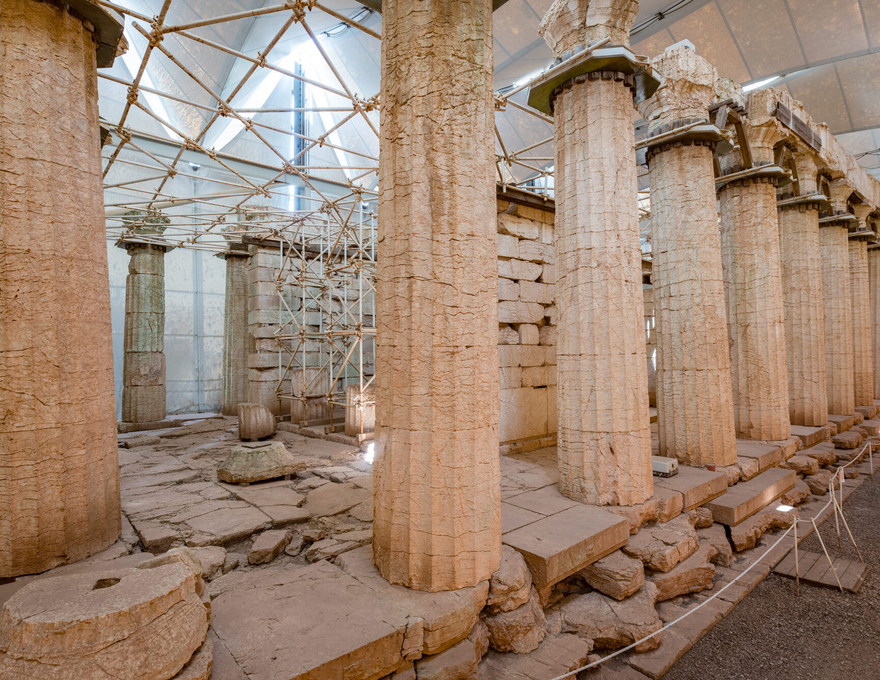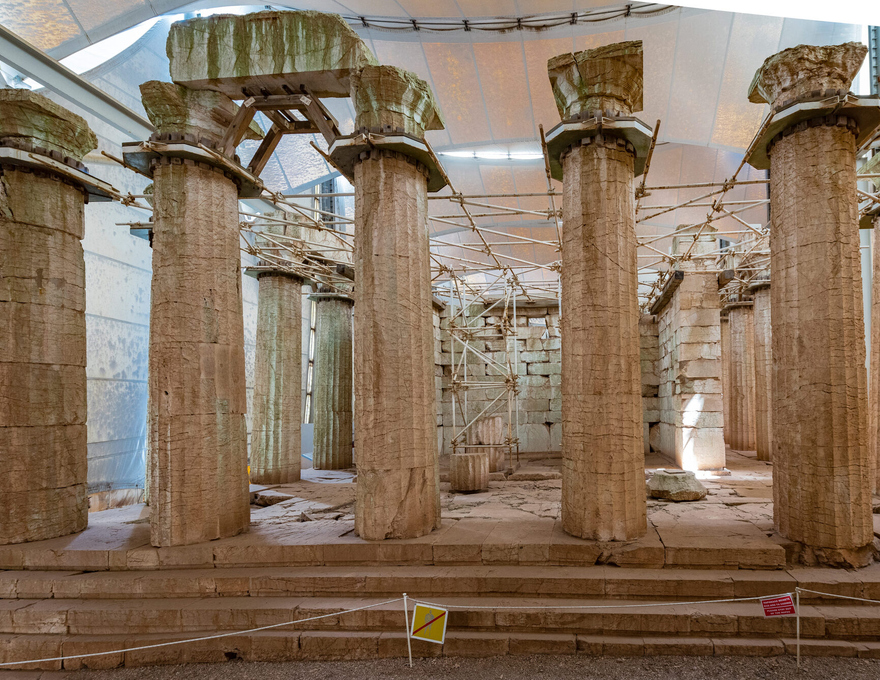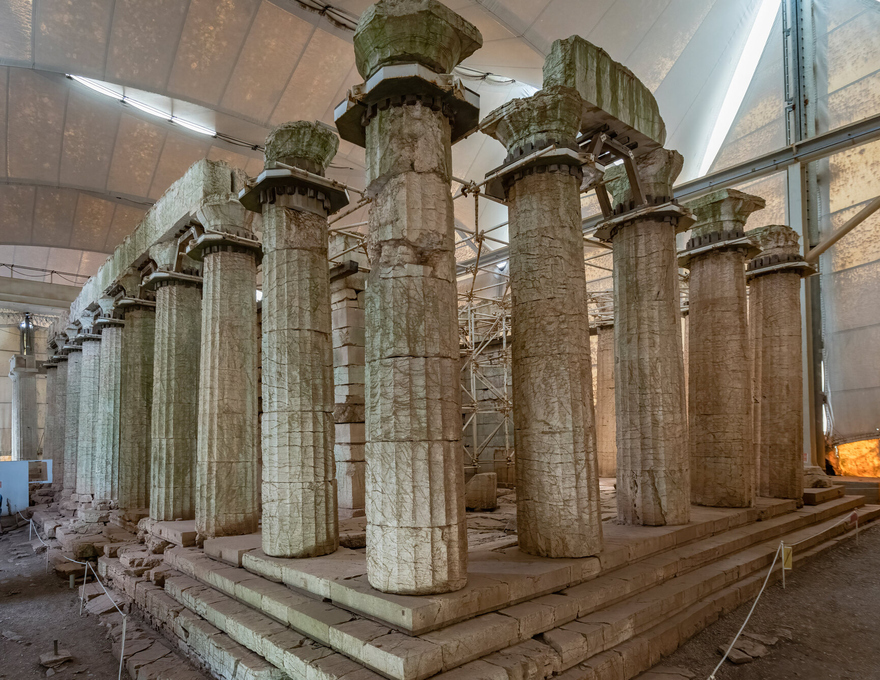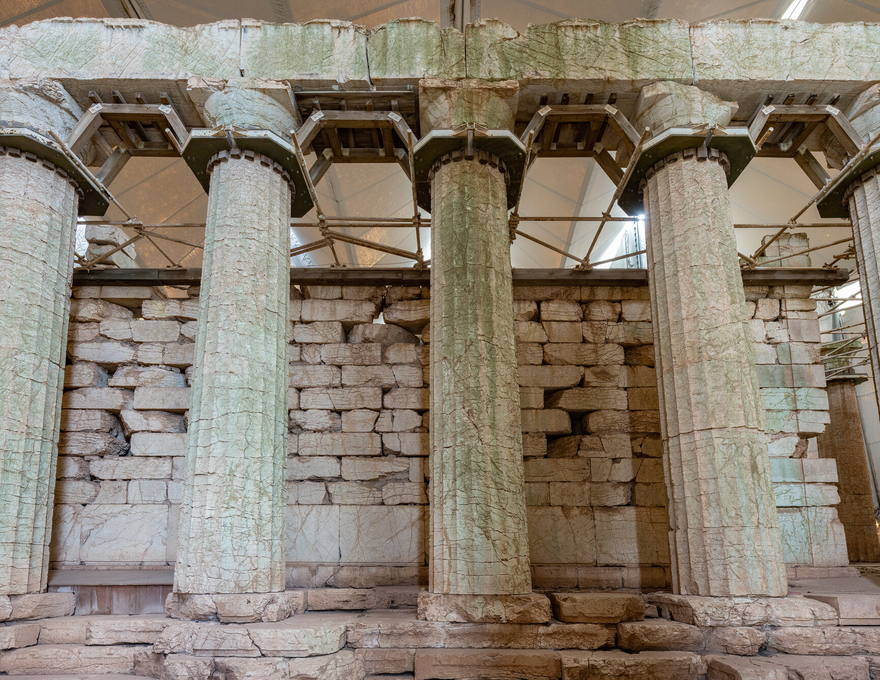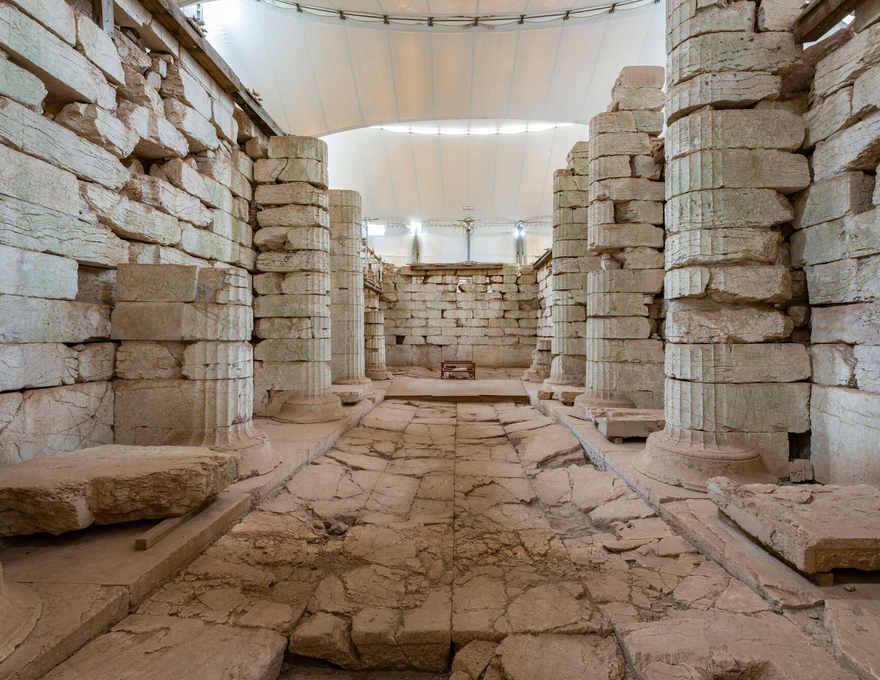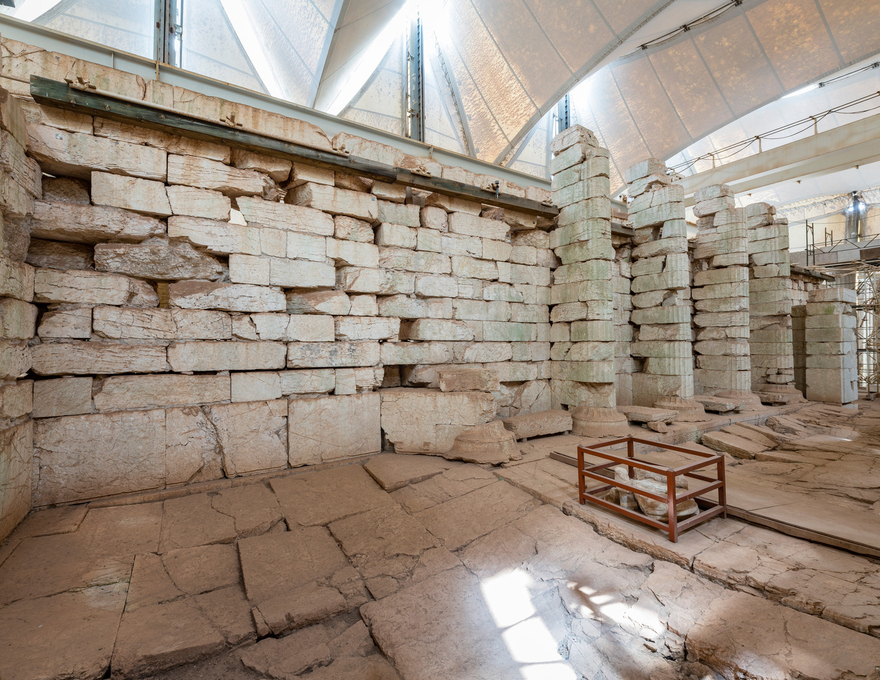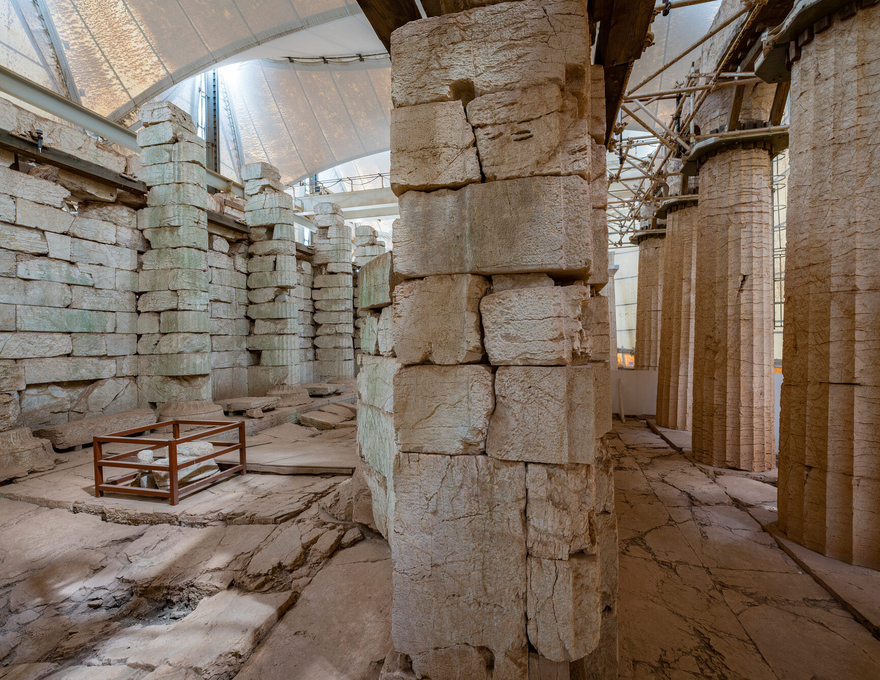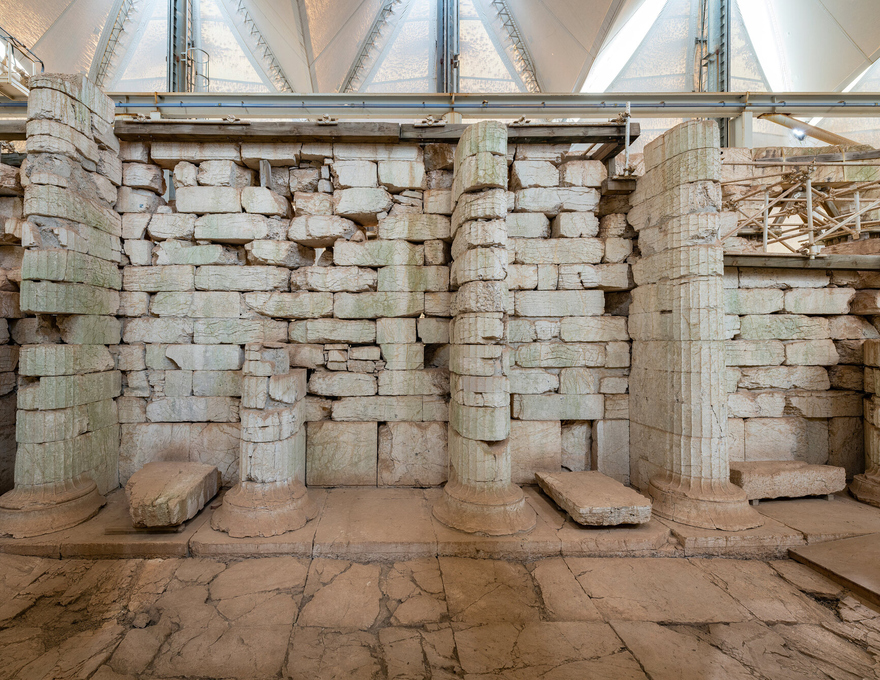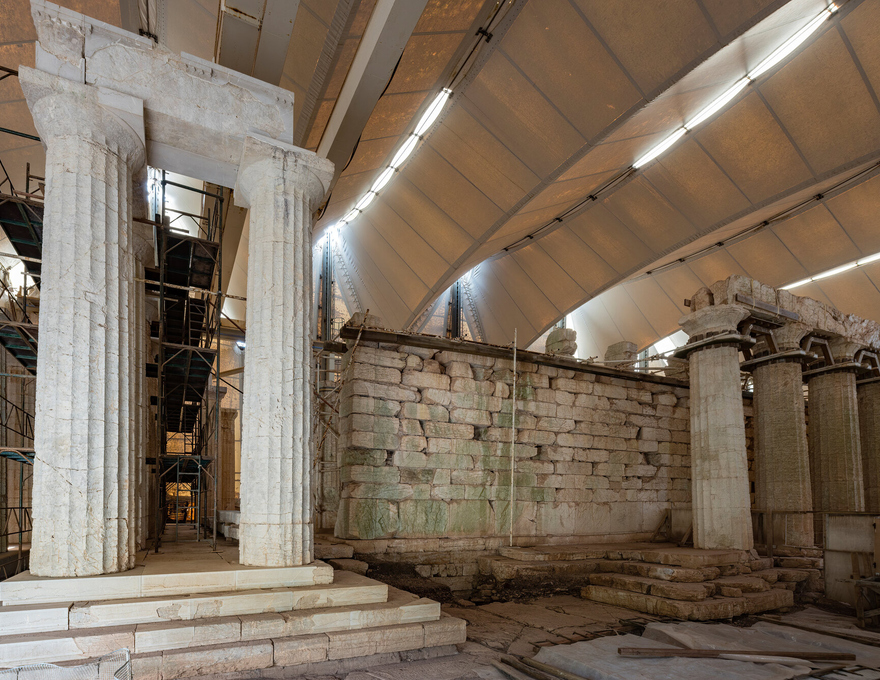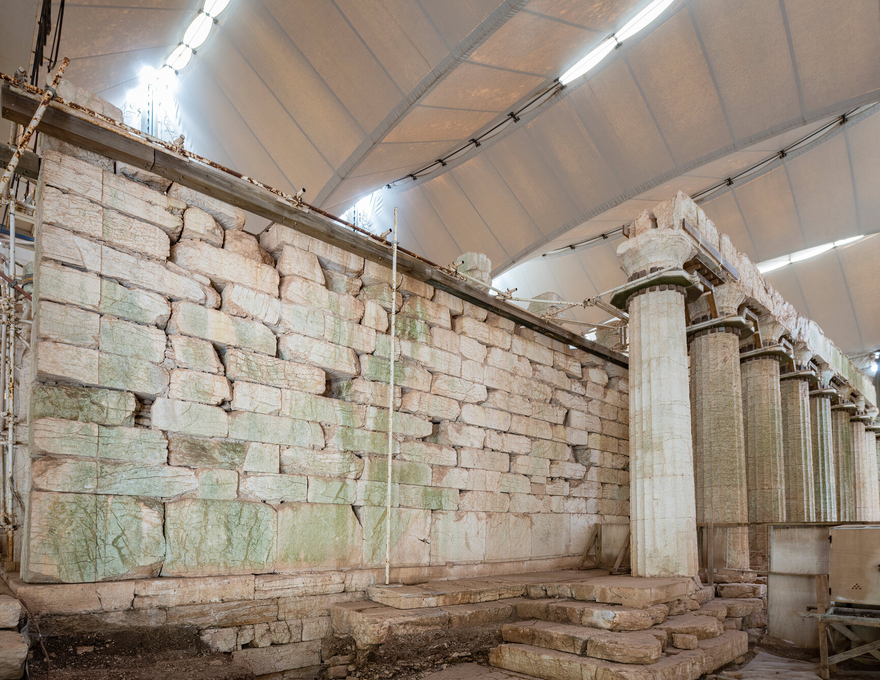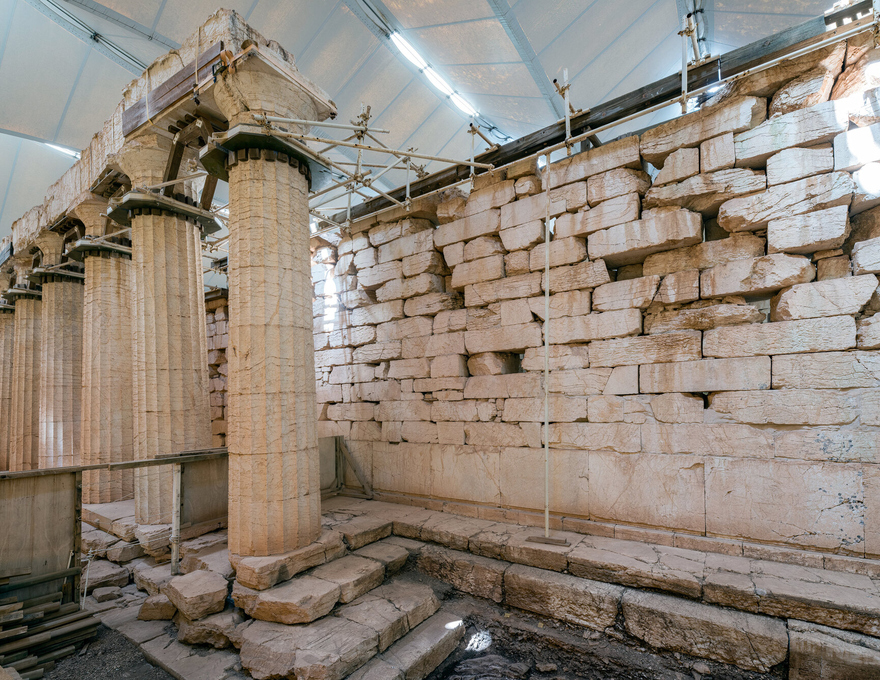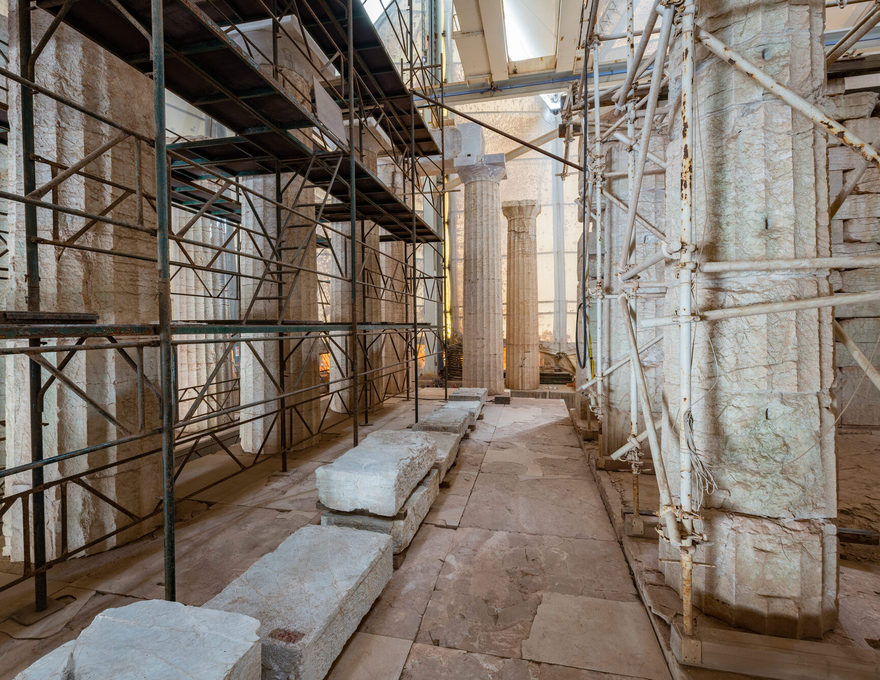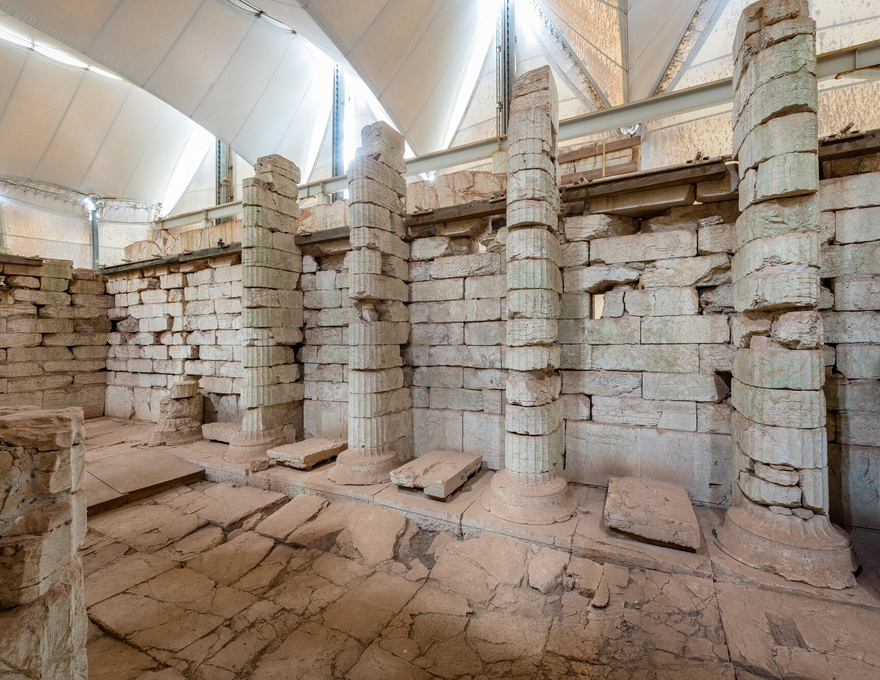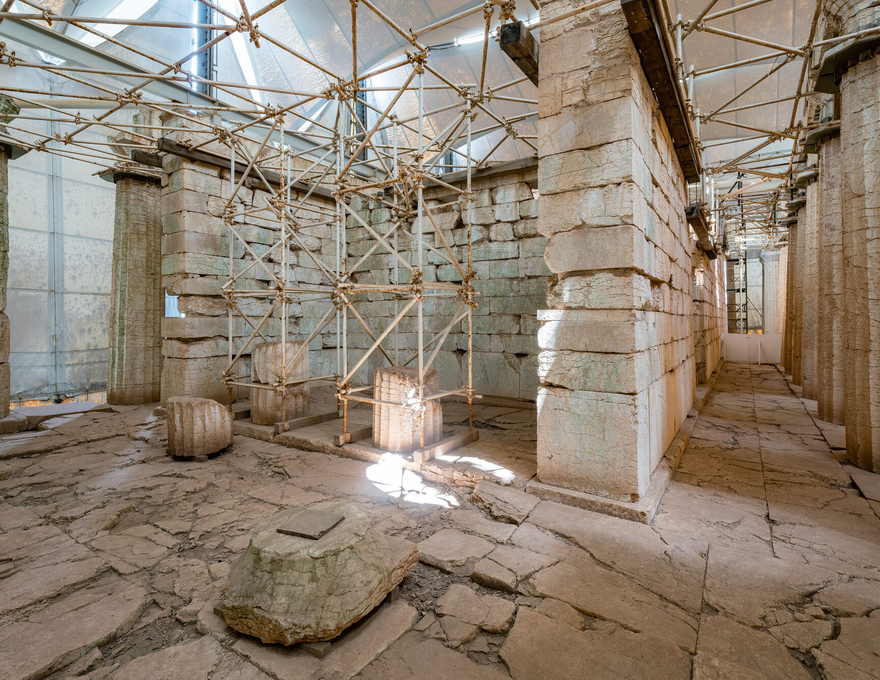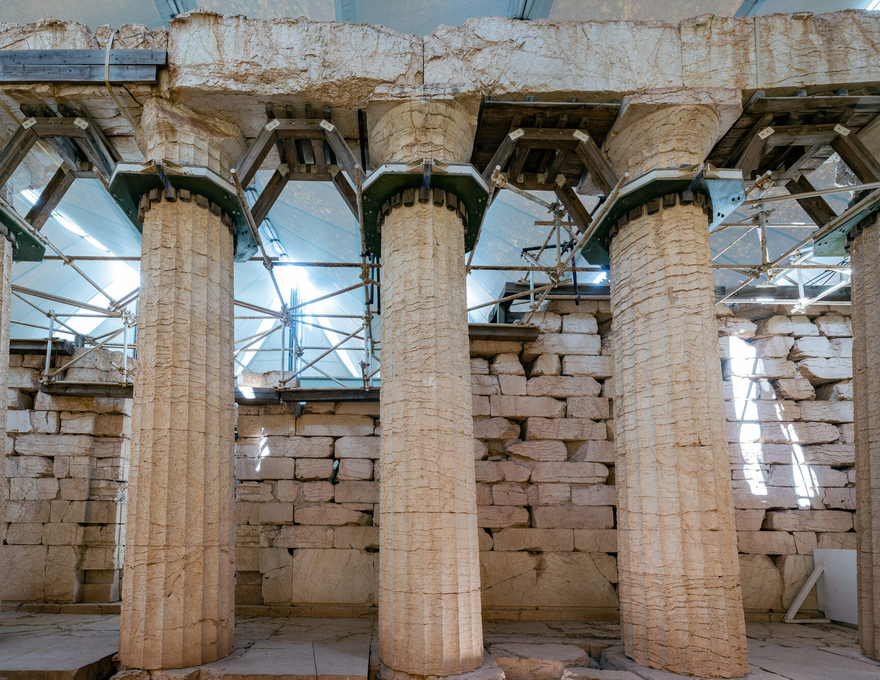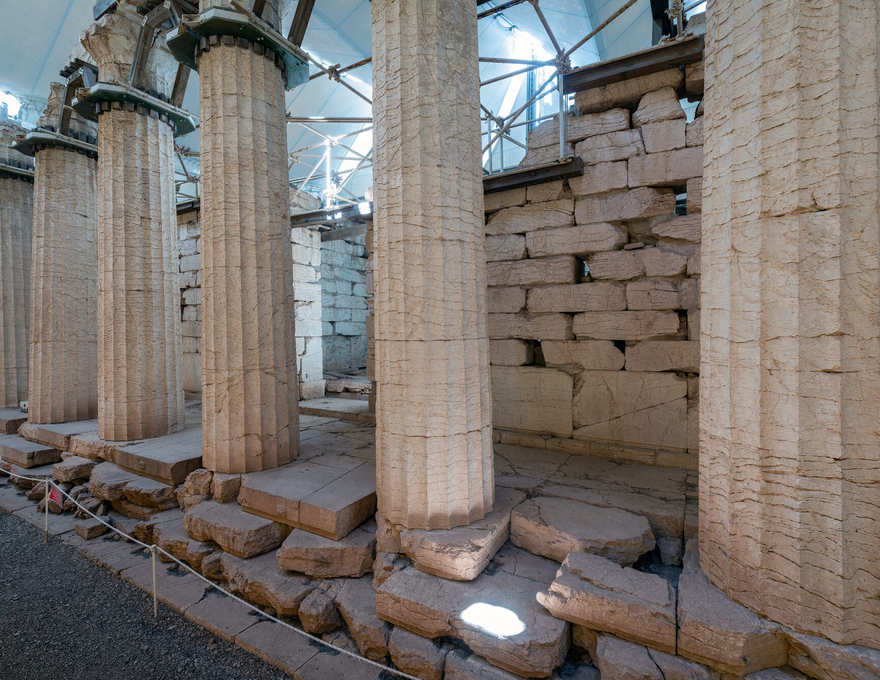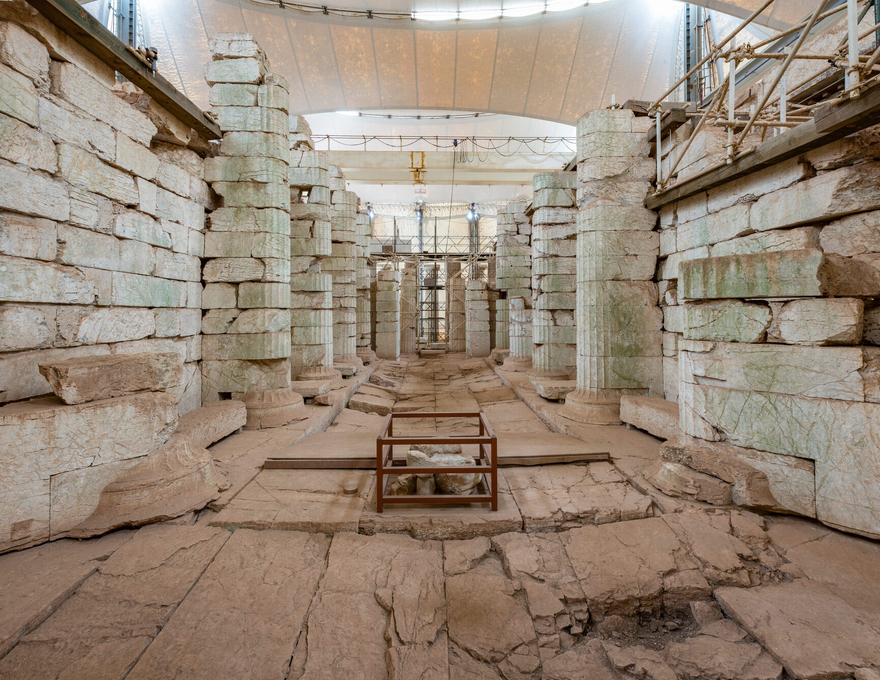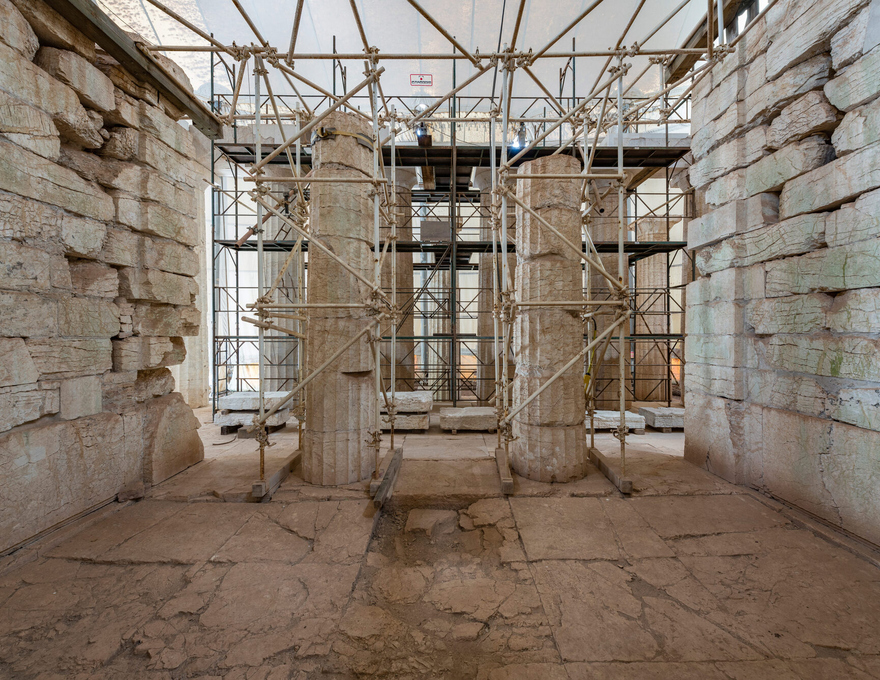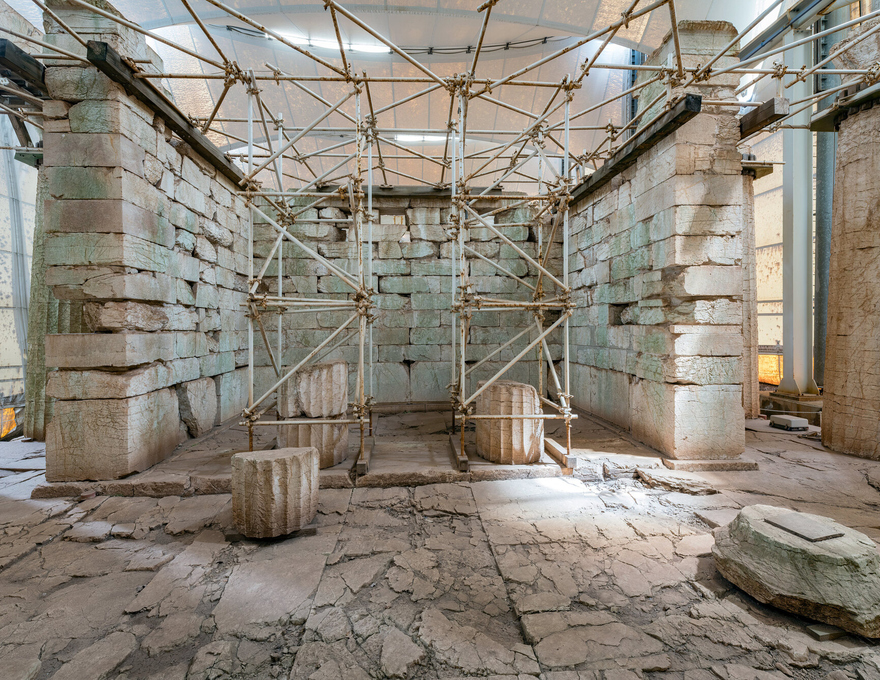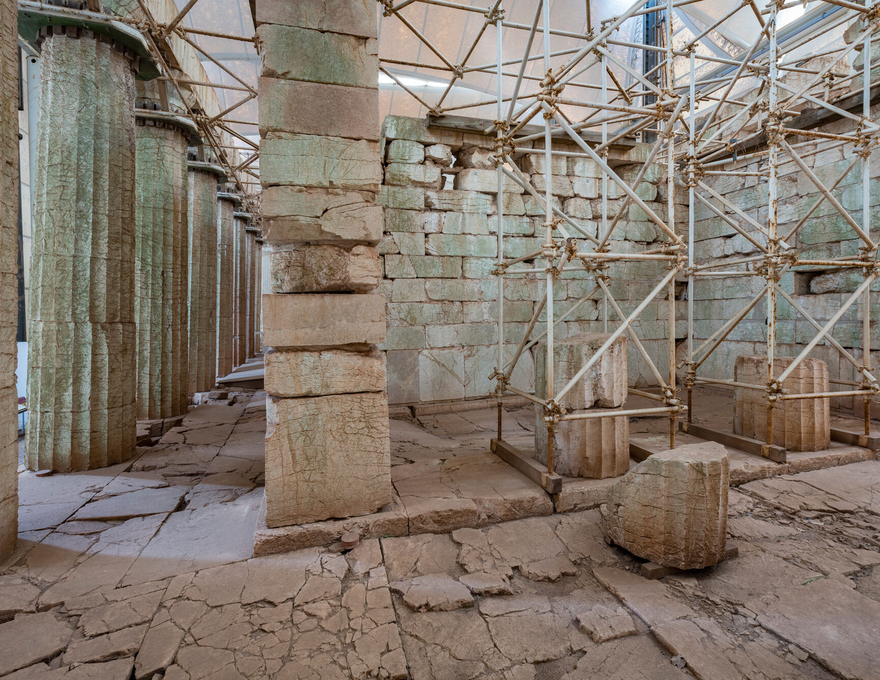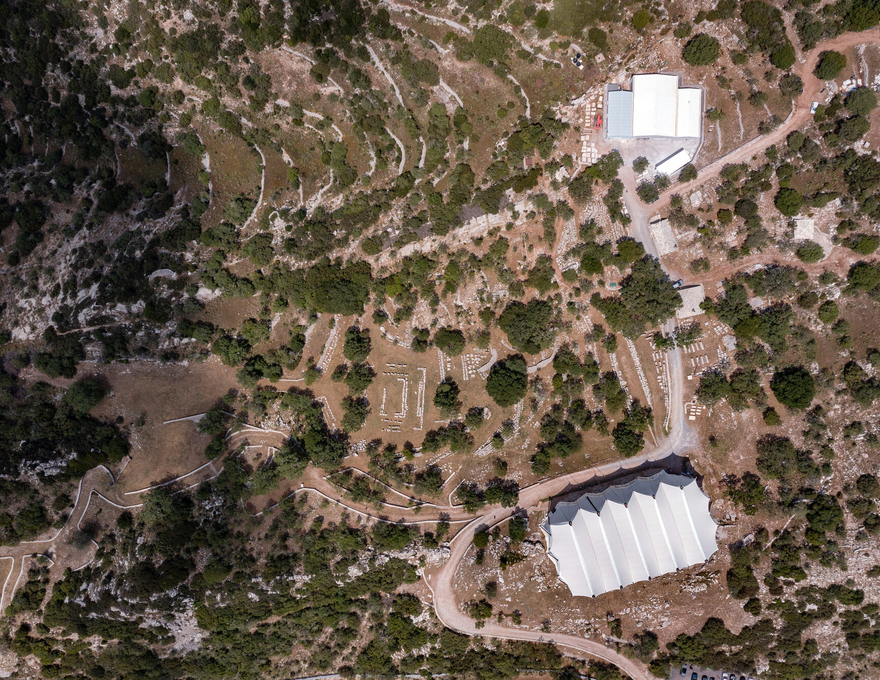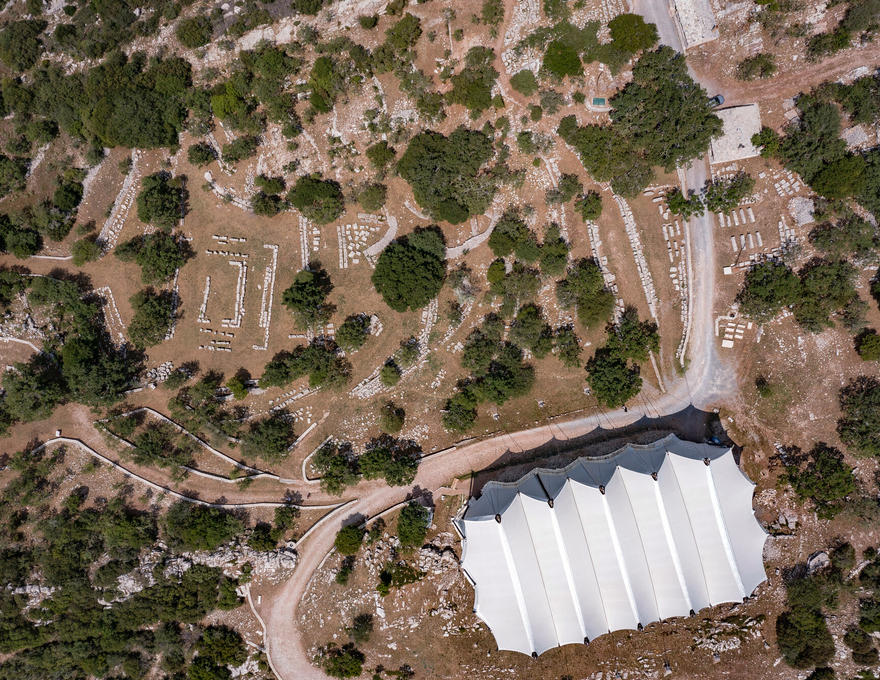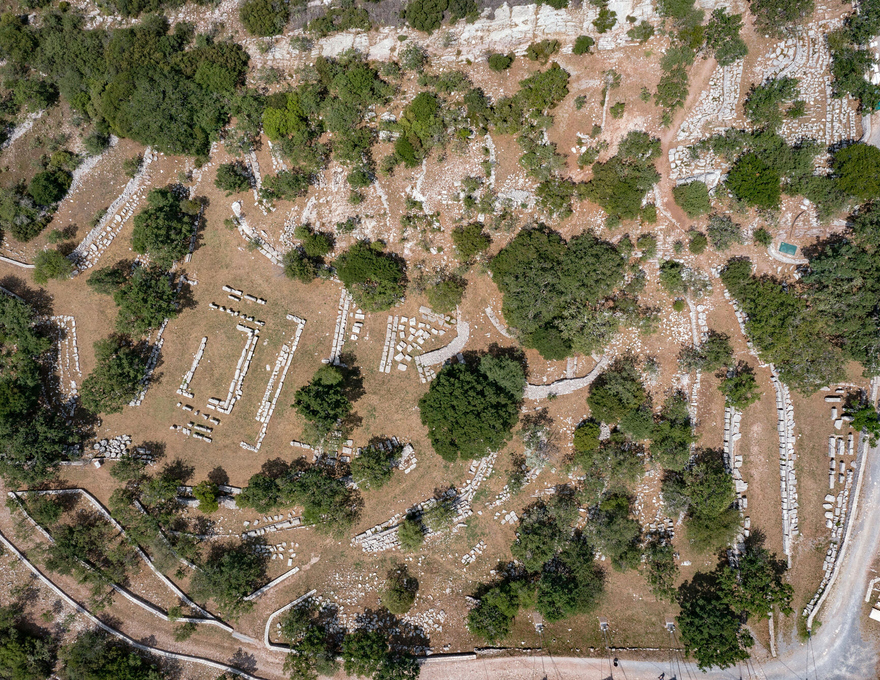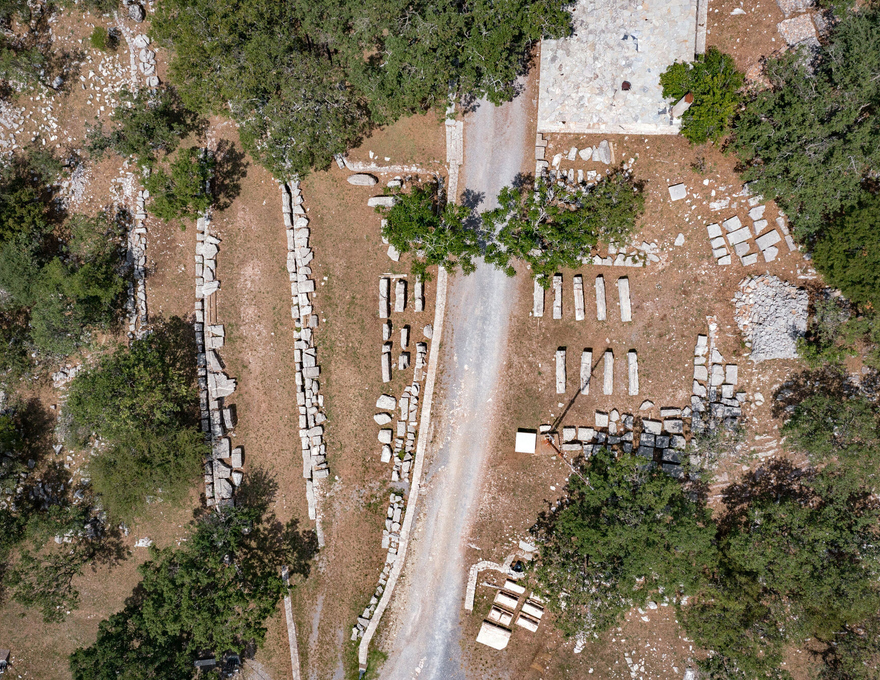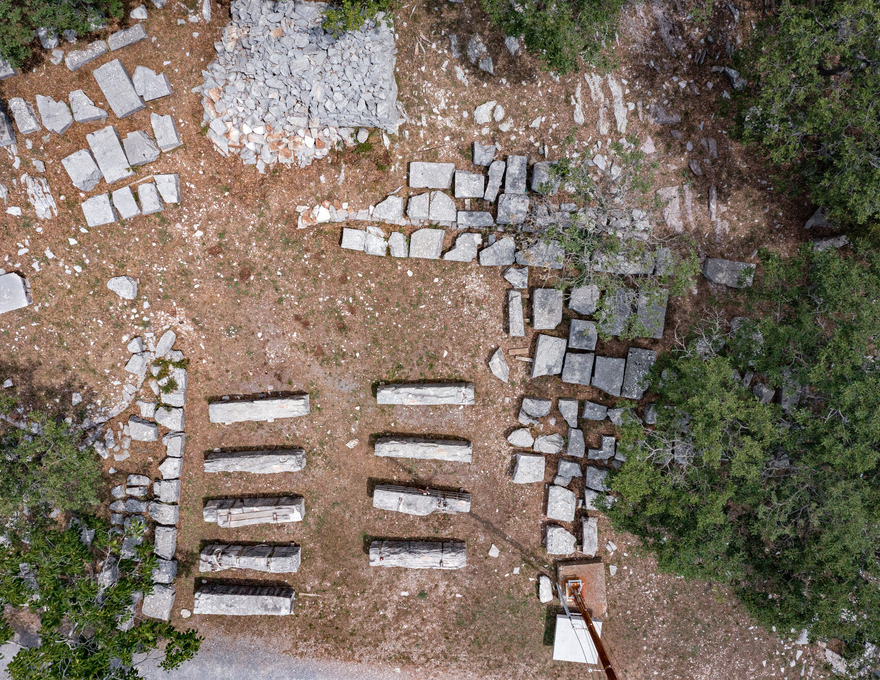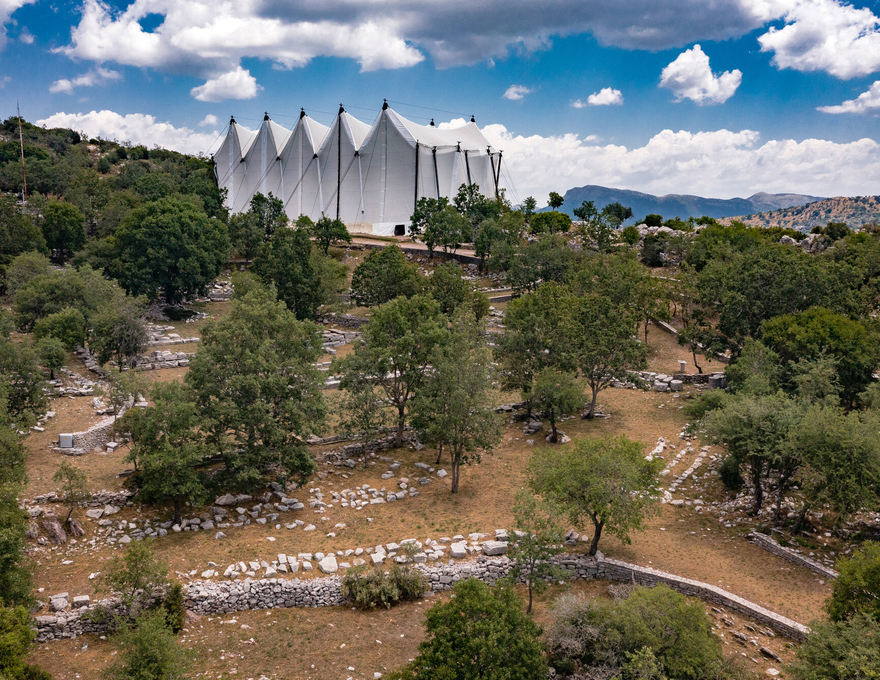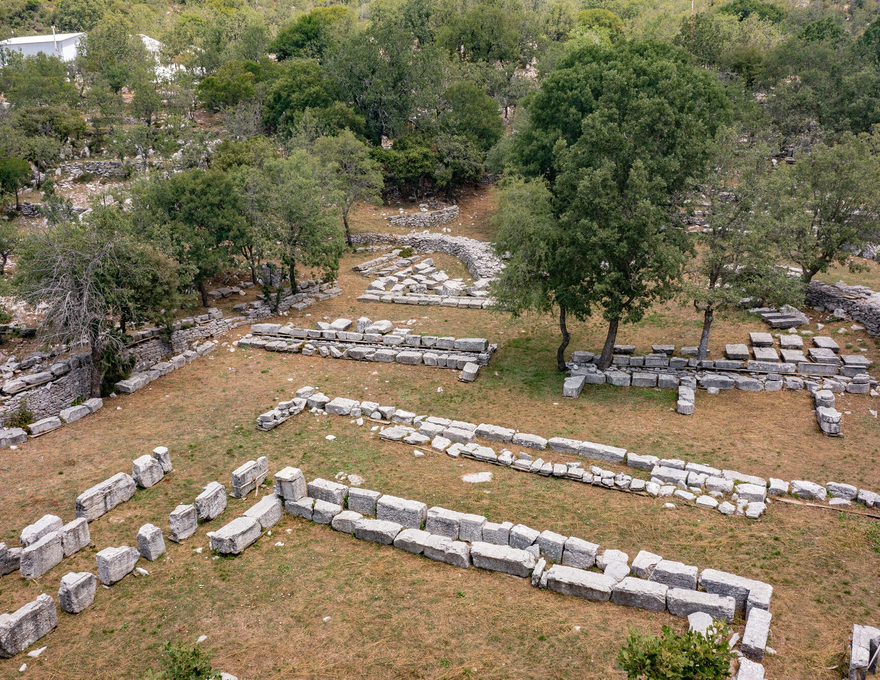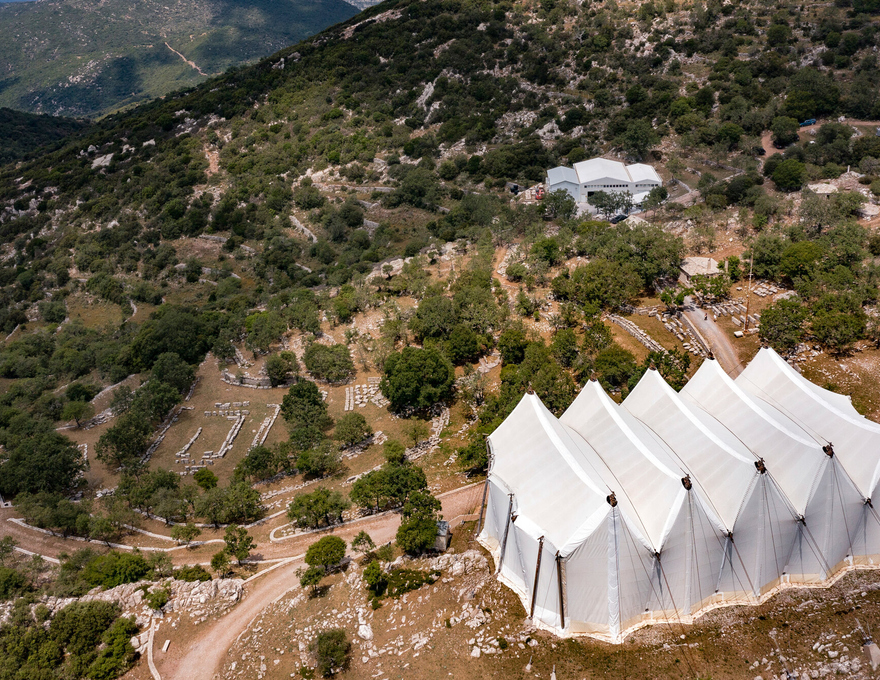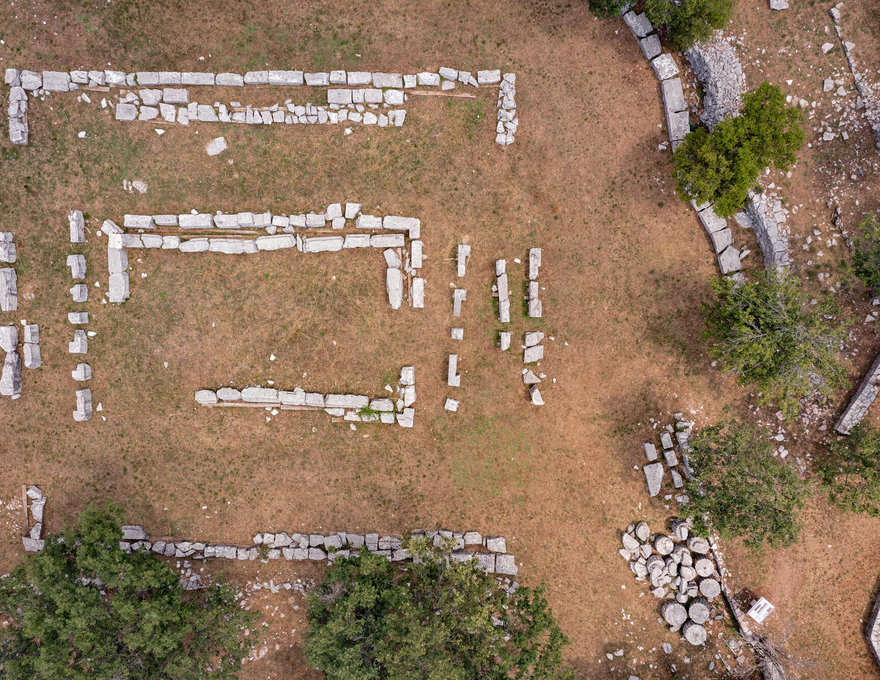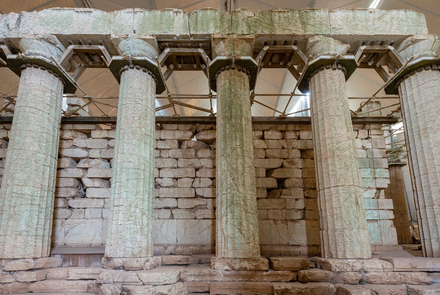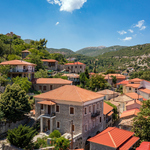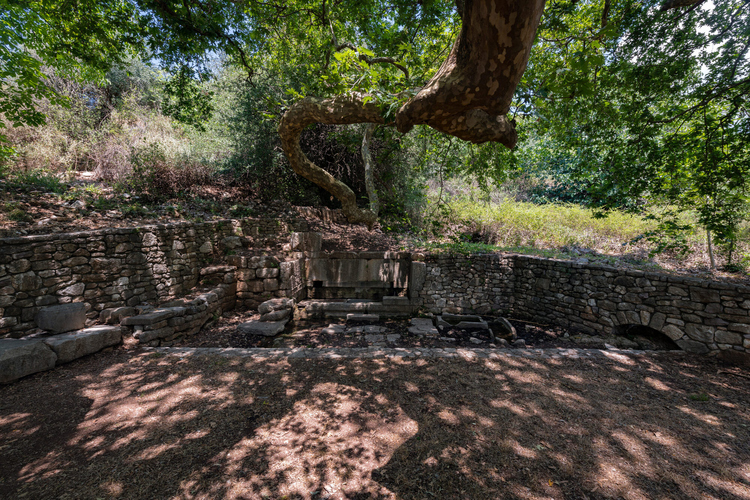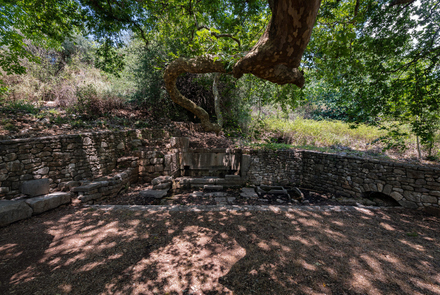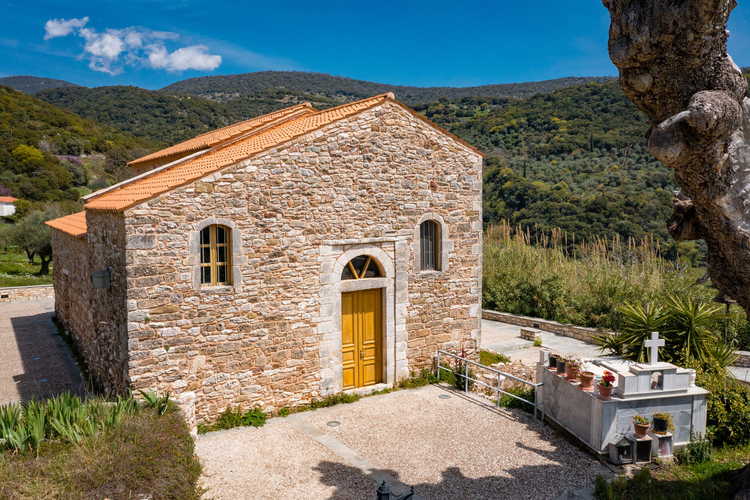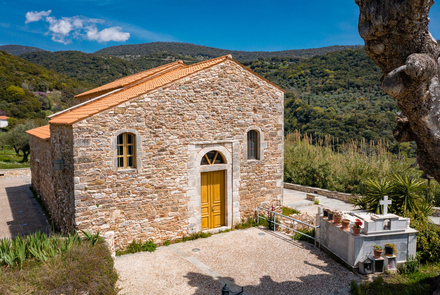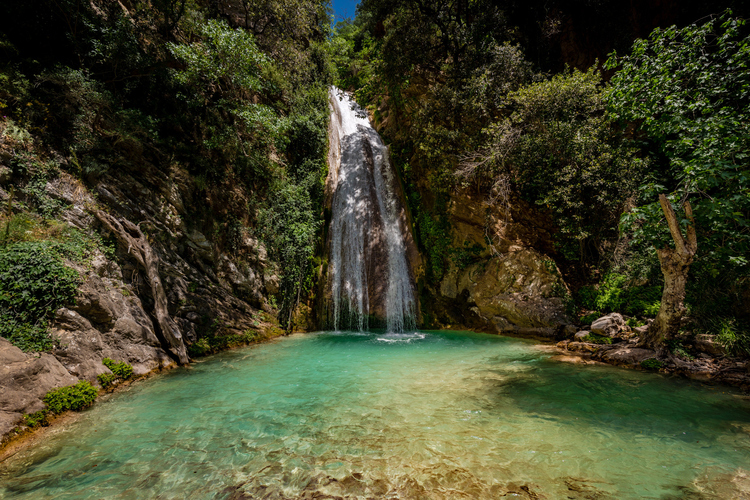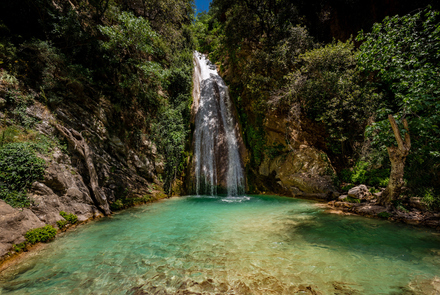Archaeological Site of the Temple of Apollo Epikourios
Built at a high altitude, in the bare and rocky landscape of Bassae of Phigaleia in modern Ilia, the temple of Apollo Epikourios occupies a special place in the history of the ancient Greek architecture. It is one of the best surviving examples of the Classical period, with conservative and at the same time innovative features. It is the first Greek monument to be included in the list of UNESCO World Heritage Sites in 1986.
It is dated to 420 – 400 BC and it was a dedication of the inhabitants of the Arcadian city of Phigaleia, whose remains are located at a distance of approximately 13 kilometres southwest of Bassae. However, it is not the first temple they built in this holy place. Believing that he strengthened them in the conflict they had with the Lacedaemonians, the Phigaleians founded a temple in honour of Apollo in the Archaic years and worshiped him as “epikourios”, that is a helper in war woes. A few centuries later they worshipped him with the same epithet as a healer god because he saved them from a deadly pestilence.
The temple of the Classical times, which, though several losses, still stands today and it is the work of Iktinos, the architect of the Parthenon on the Acropolis in Athens. Light-colored local limestone was used for its construction, while some parts of the roof, the column capitals of the cella (sekos) and the sculptural decoration were made out from marble. The classical temple has been founded on the natural rock, on a specially shaped plateau. Instead of the familiar orientation of ancient temples from east to west, the temple is built along the north-south axis, perhaps for cultic reasons connected to the Arcadian religious tradition, a phenomenon also known from other temples in the region.
The monument combines elements of the three architectural orders of antiquity. The Doric order predominates, and we can distinguish a pronaos, a cella, an adyton and an opisthodomos. It has six columns on the narrow sides and fifteen on the long sides. Externally, the temple had a Doric frieze with unadorned metopes and triglyphs, while a relief decoration existed only on the inner metopes of the narrow sides. The prominent decorative element of the temple was the Ionic marble frieze, which was created by the famous sculptor Paionios and it ran around internally the cella of the temple, above the Ionic semi-columns. The frieze had a total length of 31 meters, and it is consisted of 23 marble slabs. Twelve of them depict an Amazonomachy and the remaining eleven, a Centauromachy.
During the first systematic excavation of the temple, in 1812, by a group of foreign scientists, the slabs were discovered under fallen architectural members. During the same research, the oldest Corinthian column capital in the history of Greek architecture was also found, which, however, was ultimately not saved. After an auction organized by the excavators themselves, the frieze and other sculptures of the temple ended up in the British Museum (1815), where they are currently exhibited.
The extremely difficult reconstruction and restoration project of the monument is underway, while since 1987 the temple has been protected from adverse weather conditions with a special shelter that will be removed after the completion of the necessary works.
Copyediting: Ephorate of Antiquities of Ilia
Currently, there is no public transportation connecting the site with a transportation hub. Reaching the archaeological site can only be achieved with private transportation.
Τhe ticket, valid for one day, is 10 euros (reduced ticket 5 euros)
The following categories of visitors are entitled to 50% reduced admission
- Greek citizens and citizens of other European Union member states over 65 years of age, upon presentation of their police ID or passport to confirm age and country of origin, during the period from October 1st to May 31st of each year.
- Parents accompanying primary education schools visits from EU member-states and the European Economic Area.
- Accompanying teachers of educational visits of schools and institutions of primary, secondary and tertiary education from non European Union countries.
Free admission - Exemption from the obligation to pay a price
1. Entrance to organized archaeological sites, historical sites, monuments and museums that belong to the State and are managed by the Ministry of Culture is free, without payment of a fee, on the following dates:
- March 6th (Melina Mercouri Memorial Day),
- April 18th (International Monuments Day),
- May 18th (International Museum Day),
- Last weekend of September (European Heritage Days fortnight),
- October 28th (National Holiday)
- First and third Sunday of each month from November 1st to March 31st of each year.
2. The following categories of visitors are entitled to free admission :
- Children and young people up to the age of 25, from EU member-states, upon presentation of their ID card or passport for verification of their age and country of origin.
- Children up to the age of 18, from non-European Union countries, upon presentation of their passport for verification of their age and country of origin.
- Persons over 25 years, being in secondary education (evening schools, second-chance schools) and in vocational schools from EU member-states and countries of the European Economic Area, upon presentation of attendance certificate bearing evidence of its duration.
- Accompanying teachers and learners during educational visits of schools and institutions of primary, secondary and tertiary education from EU member-states and countries of the European Economic Area.
- People entitled to Social Solidarity Income and members dependent on them, upon presentation of their ID card and certificate of free entry based on eligibility to the programme showing the duration, as well as a valid document certifying dependent members.
- Greek unemployed citizens upon presentation of their ID card and valid unemployment card or recent renewal of it.
- Persons with disabilities and one escort (only in the case of 67% disability), irrespective of the country of origin, upon presentation of their ID card or passport and Disability Certificate issued by the Single Body of Social Insurance (decision of the Disability Certification Center-KEPA) for Greek citizens or similar certificates issued by a corresponding authorized foreign body.
- Greek parents of families with many children, the children being up to the age of 25 and irrespective of age if they have disabilities, upon presentation of their ID card and a valid certificate of a large family status by the Greek Supreme Confederation of large family parents and the Disability Certificate (issued by the Disability Certification Center).
- Greek parents of families with three children, the children being up to the age of 25 and irrespective of age if they have disabilities, upon presentation of their ID card and a valid family status certificate issued by the Municipality and the Disability Certificate (issued by the Disability Certification Center).
- Greek single parent families with children up to the age of 25 and irrespective of age if they have disabilities, upon presentation of their ID card and a valid family status certificate issued by the Municipality and the Disability Certificate (issued by the Disability Certification Center).
- Refugees, upon presentation of the International protection applicant card or a Travelling document of the 28th July 1951 Convention (a passport of recognized refugee) or a Foreign travelling document (a passport of recognised holder of subsidiary protection) or residence permit.
- Greek citizens performing their military service, with valid military service identification card.
- Greek -Olympic Winners upon presentation of their ID card and membership card of the Hellenic Olympic Winners Association.
- Official guests of the Greek State, after request of the competent Ministry (Directorate/Office for Protocol) and approval by the General Directorate of Antiquities and Cultural Heritage.
- Members of the International Council of Museums (ICOM) and International Council of Monuments and Sites (ICOMOS), upon presentation of their ID card or passport and their valid membership card.
- Members of Societies and Associations of Friends of State Museums and Archaeological Sites, managed by the Hellenic Ministry of Culture and Sports, upon presentation of their valid membership card.
- Active employees of the Hellenic Ministry of Culture and Sports, the Archaeological Resources Fund, the Acropolis Museum and the Kanellopoulos Museum, upon presentation of their service ID card.
- Scientists licensed for purposes of photographing, studying, designing or publishing antiquities, upon presentation of the relevant license.
- Members of the Chamber of Fine Arts of Greece, upon presentation of their valid membership card.
- Greek tourist guides, upon presentation of their professional ID card.
- Journalists, upon presentation of a valid journalist ID card
- Holders of a three-year Free Entry Pass.
- Members of the Association of Greek Art Historians, upon presentation of their valid membership card.
3. The following categories of visitors are entitled to obtain a three-year Free Entry Pass -retaining the right of renewal- issued by the competent Services of the Hellenic Ministry of Culture and Sports :
- Active members of the Central Councils and Regional Councils of Monuments of the Hellenic Ministry of Culture and Sports.
- Active members of the Board of Directors of the Archaeological Resources Fund, the Acropolis Museum and the Kanellopoulos Museum.
- Active Directors and members of Foreign Archaeological Schools in Greece.
- Contract employees of the Hellenic Ministry of Culture and Sports, the Archaeological Resources Fund, the Acropolis Museum and the Kanellopoulos Museum. Renewal of the free pass is possible if they continue to be employed by the Ministry of Culture and Sports, the Archaeological Resources Fund, the Acropolis Museum and the Kanellopoulos Museum.
- Retired employees of the Hellenic Ministry of Culture and Sports, the Archaeological Resources Fund, the Acropolis Museum and the Kanellopoulos Museum.
- Civil Servants in the Legal Advisor Office of the Hellenic Ministry of Culture and Sports.
- Greek active teachers in primary, secondary and tertiary education. In the case of substitute/hourly teachers, renewal of the free pass is possible if they continue to be employed as teachers.
- Graduates of Departments of History and Archaeology of Schools of Philosophy, as well as graduates from Schools of Architecture, Fine Arts, Conservation of Antiquities and Works of Art, including Technicians of Conservation of Antiquities and Works of Art from Greece or from equivalent Schools of EU member-states and the European Economic Area, as well as holders of Master's or PhD Degrees from those Schools and Departments.
- Graduates of Museum Studies programmes and Schools and Departments of Cultural Management of Higher Education Institutions in Greece or equivalent Institutions of EU member-states and the European Economic Area, as well as holders of Master's or PhD Degrees in those studies.
- Students and graduates of the Preparatory and Vocational School of Fine Arts of Panormos Tinos.
- Police officers of the Department of Cultural Heritage and Antiquities of Security Directorates.
Holidays
- 1 January: closed
- 25 March: closed
- Good Friday: 12:00-17:00
- Holy Saturday: 8:00-15:00
- 1 May: closed
- Easter Sunday: closed
- 25 December: closed
- 26 December: closed
- Figalia of Zacharo, P.C. 27061
- 2626022275 / 2624023753
- Construction period 420-400 BC
- Police Department of Elis - P.D. of Zacharo, Ephorate of Antiquities of Ilia
08:30 a.m. - 15:30 p.m.
For safety reasons, the Temple of Apollo Epicurius will remain closed to the public when extreme weather conditions are forecast in the area (wind force of more than 6 Beaufort and gusts of wind reaching 70km/hour.)
Please contact the site’s ticket office at 2626022275 to confirm if it is open.

